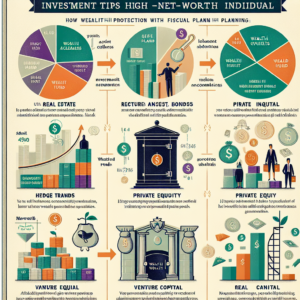

Investing for Retirement Advice
Introduction
Planning for retirement is an essential part of financial well-being. Investing wisely can help you build a nest egg that will support you during your golden years. However, navigating the world of investing can be overwhelming, especially if you are new to the concept. In this article, we will provide you with some valuable advice on investing for retirement.
1. Start as Early as Possible
One of the key principles of successful retirement investing is to start as early as possible. The power of compounding allows your investments to grow over time, giving you a significant advantage. Even small contributions made early on can have a substantial impact on your retirement savings. So, don’t delay – start investing for retirement today!
2. Determine Your Risk Tolerance
Before making any investment decisions, it’s important to assess your risk tolerance. Your risk tolerance is your ability to handle fluctuations in the value of your investments. Generally, younger individuals can afford to take more risks since they have more time to recover from any losses. However, as you approach retirement age, it may be wise to shift towards more conservative investments to protect your capital.
3. Diversify Your Portfolio
Diversification is a crucial strategy to mitigate risk and maximize returns. By spreading your investments across different asset classes, such as stocks, bonds, and real estate, you reduce the impact of any single investment’s poor performance. This way, if one sector experiences a downturn, the others may still generate positive returns. Consult a financial advisor to help you create a well-diversified portfolio that aligns with your risk tolerance and financial goals.
4. Take Advantage of Tax-Advantaged Accounts
Utilizing tax-advantaged retirement accounts, such as 401(k)s or Individual Retirement Accounts (IRAs), can offer significant tax benefits. Contributions to these accounts are often tax-deductible, and the growth of investments within them is tax-deferred until you withdraw the funds during retirement. Take advantage of these accounts to maximize your savings and reduce your tax burden.
5. Regularly Review and Adjust Your Investments
Investing for retirement is not a one-time decision. It’s important to regularly review your investments and make adjustments as needed. Market conditions, your financial goals, and your risk tolerance may change over time. Rebalancing your portfolio periodically ensures that your investments remain aligned with your objectives. Stay informed about market trends and seek professional advice when necessary.
Conclusion
Investing for retirement requires careful planning and a long-term perspective. By starting early, assessing your risk tolerance, diversifying your portfolio, utilizing tax-advantaged accounts, and regularly reviewing your investments, you can set yourself up for a comfortable retirement. Remember, seeking advice from a financial professional can provide you with personalized guidance tailored to your unique circumstances. Start investing today and secure your financial future!





